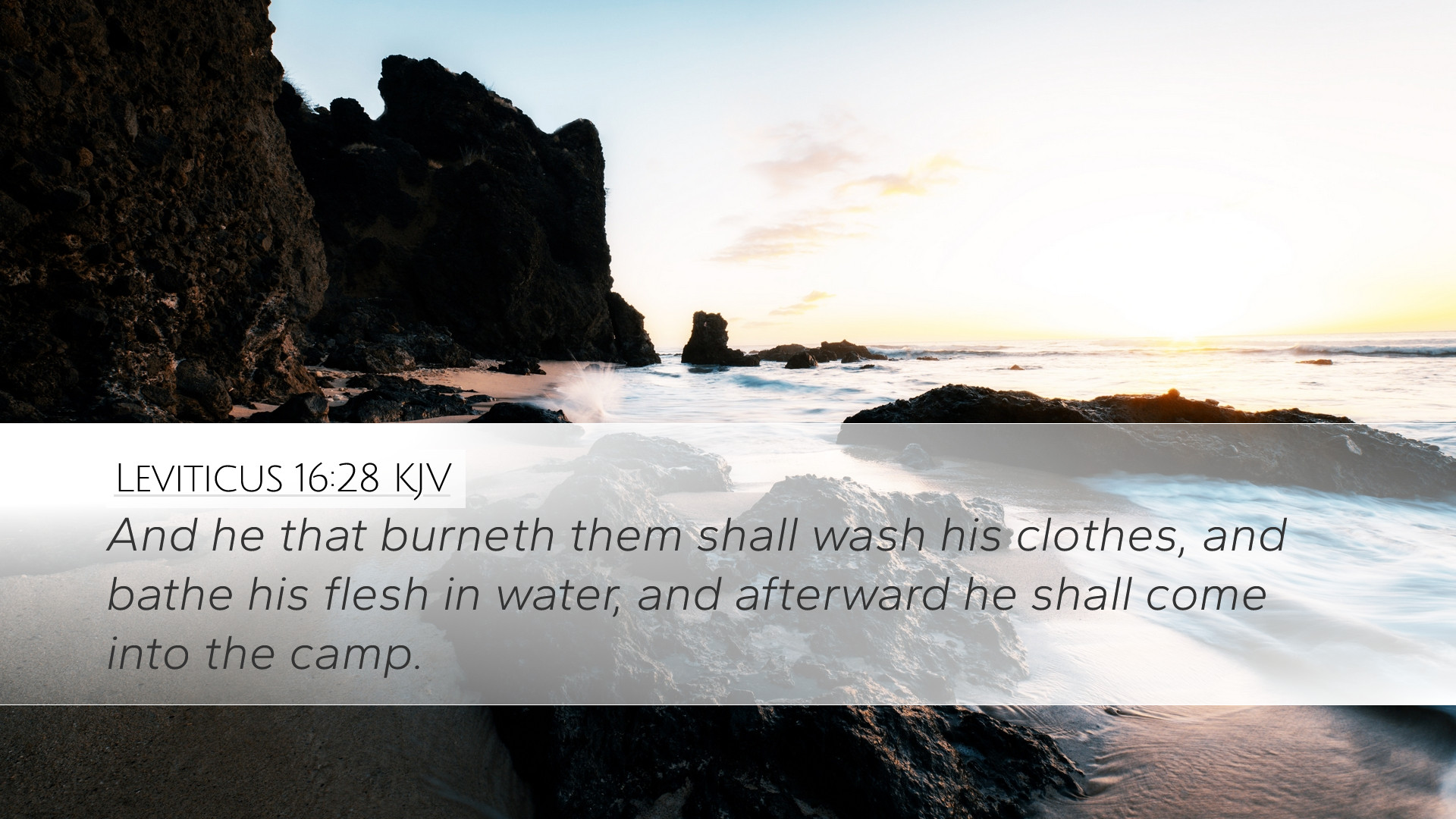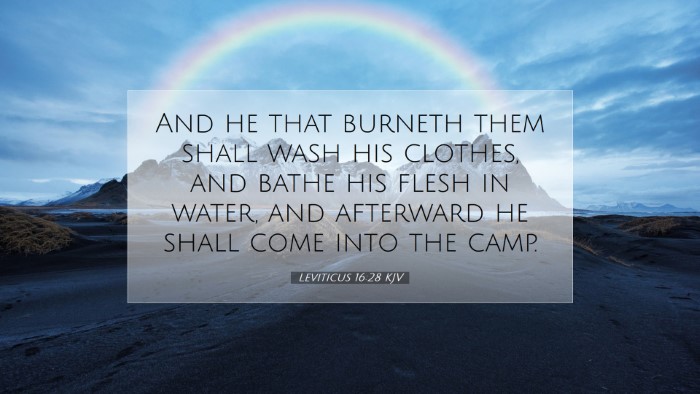Commentary on Leviticus 16:28
Verse: Leviticus 16:28 - "And he that let go the goat for the scapegoat shall wash his clothes, and bathe his flesh in water, and afterward come into the camp."
Introduction
Leviticus 16:28 is a crucial verse that concludes the description of the Day of Atonement, a solemn day in the Hebrew calendar when the high priest performed vital rituals for the atonement of Israel's sins. This verse speaks specifically to the procedural purity required of the individual who was responsible for releasing the scapegoat into the wilderness. Understanding this scripture involves a multifaceted approach, inspecting its historical context, theological implications, and practical applications.
Contextual Background
The Day of Atonement (Yom Kippur) is detailed in Leviticus 16, where two goats are chosen: one for the Lord, which is sacrificed, and another, the scapegoat, which is sent away to carry the sins of the people into the wilderness. This chapter highlights God's desire for holiness and the necessity for purification and atonement, showcasing both the seriousness of sin and the provision of God for redemption.
The Role of the Scapegoat and Ritual Purity
Matthew Henry emphasizes the significance of the scapegoat in carrying the sins of Israel away. He notes that the act of sending the goat into the wilderness symbolizes God’s removal of sin from His people. The entire ceremony illustrates the gravity of sin and the need for atonement, engaging the spiritual and communal consciousness of Israel.
Albert Barnes, in his commentary, highlights the narrative of ritual purity in this verse. The requirement for the one who released the scapegoat to wash his clothes and bathe reflects the profound concern for ceremonial cleanliness in worship. This cleansing signifies a separation from the contagiousness of sin and indicates readiness to once again approach God’s presence.
Similarly, Adam Clarke discusses how this washing prescribes a spiritual metaphor. Just as the one releasing the goat must cleanse himself physically, so too must individuals cleanse themselves from the sin they are involved with. The act serves as a reminder of the need for holiness and purity in approaching God, underpinning the spiritual discipline expected of the priesthood and the community.
Theological Implications
- God's Holiness: This verse reiterates the holiness of God, as He requires purity not just in acts of worship but also in the surroundings and those involved in the rituals.
- The Weight of Sin: The release of the scapegoat serves as a stark reminder of the burden of sin that God takes away from His people, a typological foreshadowing of Christ's atoning death.
- Cleansing and Atonement: The requirements for cleansing signify the importance of purification before atonement can be acknowledged and experienced.
Practical Applications for Today
Matthew Henry suggests that even today, believers should recognize the importance of approaching God with a cleansed heart. This principle emphasizes the necessity of confession and penitence before seeking communion with God.
Albert Barnes reflects on the need for the church to maintain a clear distinction between moral and spiritual duties. The idea of cleanliness extends beyond physical actions to encompass our thoughts, motivations, and relationships with others.
Adam Clarke encourages believers to consider their spiritual state regularly. Self-examination and repentance should be ongoing, analogous to the measures taken to ensure the sanctity of the tabernacle worship.
Conclusion
In summary, Leviticus 16:28 encapsulates themes of purity and atonement, emphasized through the physical act of cleansing following the release of the scapegoat. It serves as a vital reminder of God's holiness, the seriousness of sin, and the continual need for spiritual cleanliness. For pastors, students, theologians, and Bible scholars, this verse is a rich source for reflection on the character of God and His redemptive plan throughout scripture.


